Charity
Fishguard RNLI launched to two dramatic rescues over the weekend
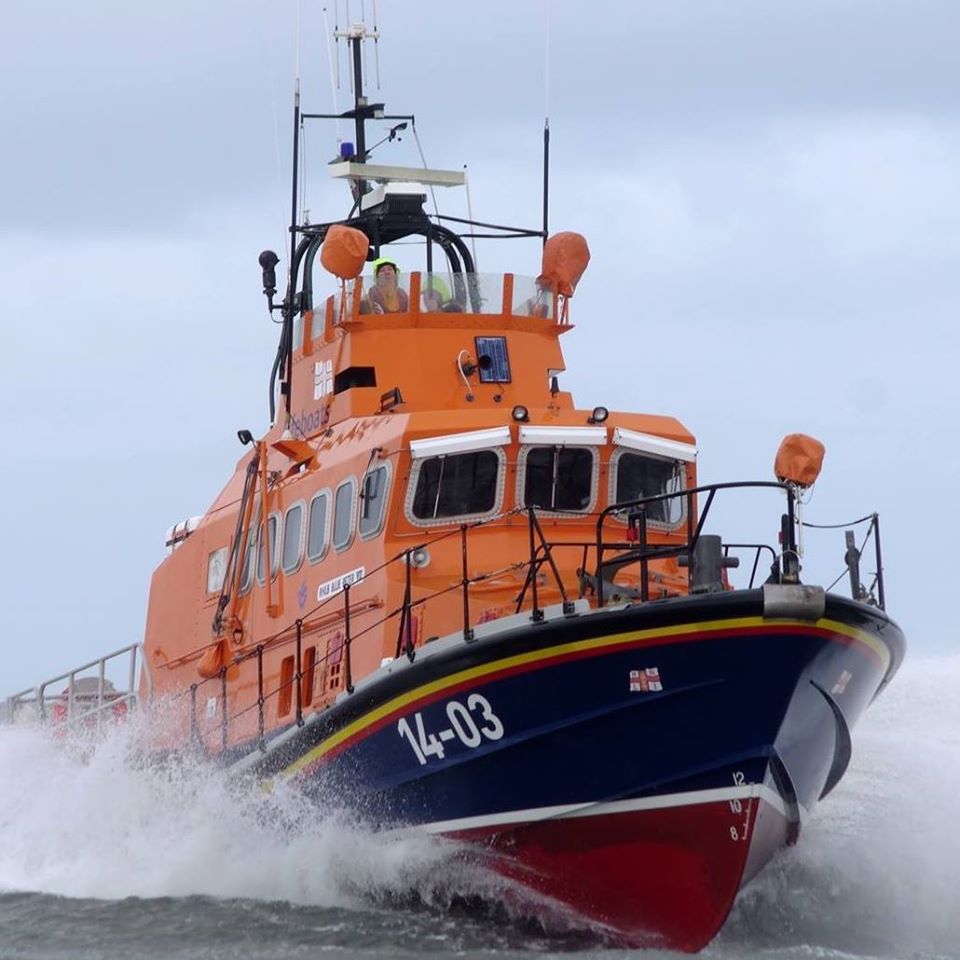
VOLUNTEERS at Fishguard RNLI were called into action twice over the weekend, responding to two dramatic rescue operations that resulted in the assistance of six casualties and the administration of vital medical treatment.
The first alert came at 3:10 pm on Saturday, 3 August. The day had been sunny, drawing many people to the waters around Fishguard for various coastal activities. HM Coastguard requested the launch of the charity’s D class inshore lifeboat, Edward Arthur Richardson, to assist two climbers at Needle Rock, directly across the bay from the lifeboat station.
Initial reports indicated that at least one climber had sustained an injury and both were unable to ascend the cliff face unaided. Coastguard cliff rescue teams proceeded to the top of the cliff while the lifeboat navigated towards the base, surrounded by rocks and shallow water.
Upon arrival, the lifeboat helm assessed the situation. Given the calm conditions, it was determined safest to deploy the anchor further out and veer down to the casualties, allowing the lifeboat to approach the rocks without running the engine astern, thus avoiding potential damage from submerged rocks. Oars were used to manoeuvre the lifeboat into position.
Both climbers were safely brought aboard, fitted with lifejackets, and provided with survival bags for warmth. An initial assessment revealed injuries to one casualty’s shoulder and both arms, caused by a dislodged rock that struck the climber below. The injured climber’s helmet had been cracked by the impact. Casualty care-trained crew members administered first aid, dressed the injuries, and provided pain relief before discharging the casualties with advice to attend A&E.
The second call came at 6:41 pm on Sunday, 4 August. HM Coastguard requested the lifeboat to assist following reports of two personal watercraft inside the harbour with four casualties, including three people in the water.
The lifeboat crew quickly located the first watercraft with one person aboard, who did not require medical assistance but could not restart the engine. The crew advised the person to remain on the craft while they assisted others. The second watercraft, initially more challenging to spot, was located some distance away with three people clinging to it. All were wearing buoyancy aids and were safely brought aboard the lifeboat. Though uninjured, the trio had been in the water for a considerable time.
To prevent the watercraft from becoming a navigational hazard, it was towed to the slip at Goodwick, where the casualties were met by a Coastguard team and family members. The lifeboat then returned to the first casualty, discovering that the engine had failed due to a detached kill cord. Unable to restart the engine, the lifeboat crew took the person and the watercraft under tow to the local slip.
Barry Scott, Volunteer Launch Authority for Fishguard RNLI, oversaw both operations. He praised the crews’ dedication and preparedness: “Our crews train hard for these moments, so that when they are needed, they are ready to answer that call. The climbing accident is not something we see often in our area, but the crew successfully recovered two casualties and provided the necessary medical attention they required. Fortunately, the most seriously injured casualty was wearing a helmet and had a means to call for help.
“For the second time in two days, our dedicated volunteer crew put in another great effort. When there are casualties in the water, there is always that extra urgency to launch, and our crew were quickly on scene and the casualties recovered safely from the water.
“It is great to see that all casualties involved were wearing the correct equipment for their type of activity. I would like to take the opportunity to remind anyone enjoying activities around the coast to check and ensure they have the correct equipment, including a means of contacting help, which should be within reach at all times. If needed, call 999 or 112 and ask for Coastguard.”
Fishguard RNLI continues to stand ready to assist those in distress, exemplifying their commitment to safety and rapid response.
Charity
Angle RNLI launch to stricken yacht in 42-knot gale as skipper swept overboard
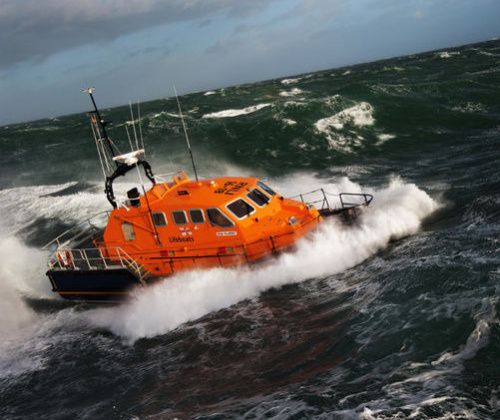
Lifeboat crew battle six-metre seas after lone sailor loses engine, sail and takes on water west of Skokholm
ANGLE RNLI lifeboat volunteers carried out a dramatic rescue after responding to a broken Pan Pan call from a 28ft yacht in severe conditions, with winds gusting to 42 knots and waves reaching up to six metres.
At 10:56am on Tuesday (Feb 3), the crew were already afloat on a navigation pass-out exercise in Dale Roads when they overheard the distress transmission from a yacht west of Skokholm Island. Moments later, HM Coastguard tasked the lifeboat to respond while further information was gathered.
While making best speed to the scene, the crew were told the yacht, carrying one person, had suffered engine failure, blown out its sail and was taking on water from an unknown source.
The casualty vessel was located around three miles west of the island. After assessing the situation, the crew decided conditions were too dangerous to place a lifeboat volunteer aboard, and the safest option was to establish a tow.
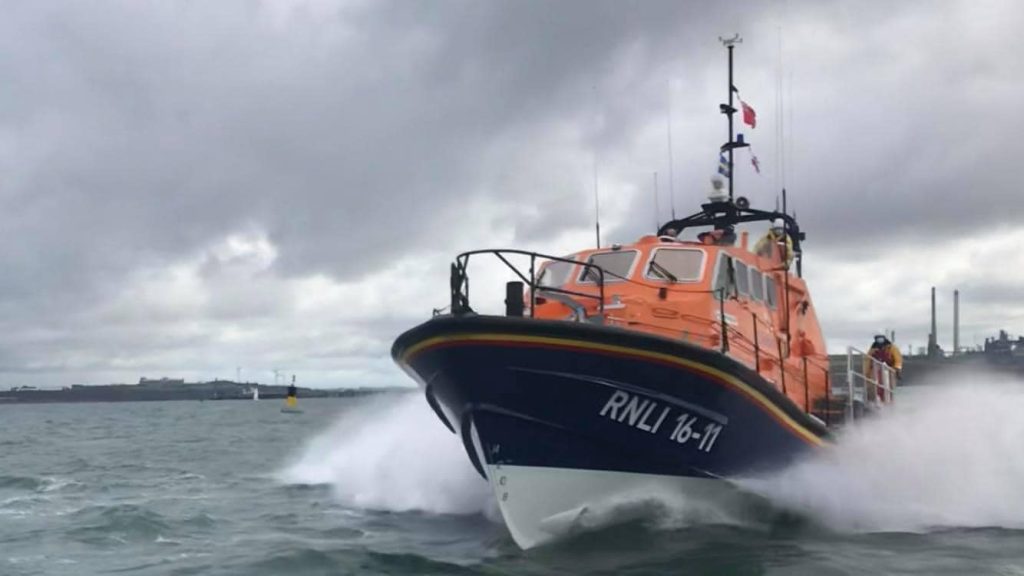
With a south-easterly gale and a very rough sea state, the tow was rigged and the yacht began a slow passage towards Milford Haven.
However, shortly after the tow commenced, a large wave threw the skipper overboard. Although tethered to the yacht by his safety harness, he was dragged alongside the vessel in the heavy swell.
The lifeboat crew immediately released the tow and began recovery operations. With the towline fouling access on one side and the casualty trapped on the other, a crew member was eventually placed aboard the yacht over its bow. The skipper’s harness was cut, allowing him to drift clear, before he was safely recovered from the water by the lifeboat.
With the priority now the sailor’s welfare, and the risks of re-establishing the tow judged too great, the crew member was brought back aboard and the lifeboat returned to harbour.
On arrival, volunteers from the Dale Coastguard Rescue Team assisted with casualty care and gathered the necessary details.
The lifeboat was stood down and made ready for further service by 2:30pm.
The station also thanked the The Lord Nelson Hotel for accommodating the sailor at short notice.
The rescue has drawn heartfelt thanks for the volunteer lifeboat crew, whose quick actions brought the man safely back to shore. The gesture from the Lord Nelson Hotel, offering shelter for the night, also reflects the community spirit that so often accompanies the work of Pembrokeshire’s RNLI teams.
A spokesperson for Angle RNLI said the incident highlighted both the speed at which conditions can deteriorate at sea and the importance of safety equipment such as harnesses and tethers.
Charity
Age Cymru urges action on hidden crisis facing older people ahead of Senedd election
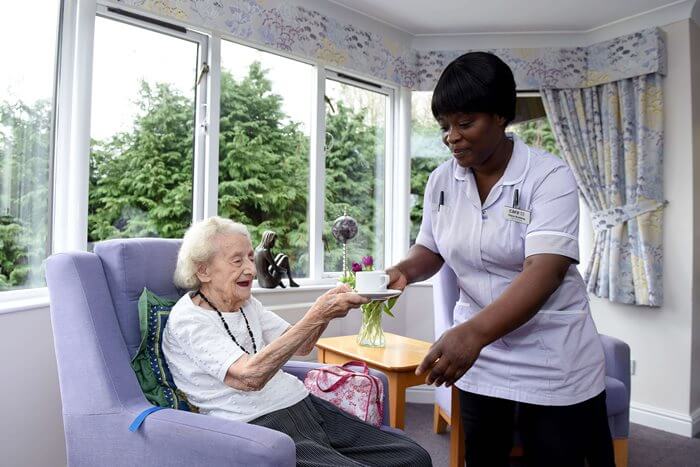
Charity warns one in three over-50s struggling with costs, healthcare delays and digital exclusion
AGE CYMRU has launched a manifesto calling on political parties to tackle what it describes as “the crisis people don’t see” facing older people across Wales ahead of the Senedd elections in May.
The national charity for older people says rising living costs, pressure on NHS and care services, poor transport links and digital exclusion are leaving many pensioners struggling day-to-day and feeling increasingly isolated.
By 2030, more than 1.3 million people in Wales will be aged over fifty – around forty per cent of the population.

But despite making up a growing share of the country, the charity says too many older people are being “pushed to the margins”.
Age Cymru’s annual survey found nearly half (46%) of older people struggled with the cost of living in the past year, with sixty-two per cent cutting back on essentials such as heating and food.
Access to healthcare is also deteriorating. Half of respondents said they had difficulty securing GP appointments, with waits of four weeks or more now common. More than half of those seeking social care described the process as difficult or very difficult.
Digital exclusion is another growing concern. Thirty-one per cent of people aged over seventy-five in Wales have no internet access at home – roughly double the UK average – meaning many cannot easily access services that have moved online.
Manifesto demands
The charity is calling on the next Welsh Government to deliver seven key changes:
• Easier access to health services
• Timely, quality social care
• Action on pensioner poverty
• Reliable public transport
• Stronger community connections and Equality Act compliance
• Offline access to services for those without digital skills
• Support to keep homes warm
Real lives affected
For Terry Lemington, 72, from South Wales, the problems are personal.
While caring for his late wife, he said he was unaware of support he could have received until just ten weeks before she died.
“It wasn’t until ten weeks before my wife passed away that I was told I could have had additional support to help me care for her,” he said.
“That included a stairlift, which in the end was due to be fitted on the day she passed away. I just wasn’t aware of the support that was available.”
Terry, who does not drive, says limited bus services leave him cut off.
“There are hourly buses to larger towns and a small village bus, but they finish at mid-day on Saturday and there is nothing on Sunday. I’m completely cut off,” he added.
“Right now it feels like older people are pushed to the margins. But we still have so much to contribute.”
Economic impact
Victoria Lloyd, Chief Executive of Age Cymru, said the issue was not only moral but economic.
“These stories are sadly all too common,” she said.
“Older people contribute around £2 billion a year to the Welsh economy, whether through paid work, childcare for families or volunteering.
“Investing in the health and wellbeing of older people is an investment in Wales as a whole.”
She added that while the Welsh Government’s Age Friendly Wales strategy had made progress, more decisive action was needed.
“We’re calling on all parties seeking votes this year to read our manifesto and ensure older people are properly considered in their policies and promises.”
Charity
Vincent Davies raises £13,682 for air ambulance charity
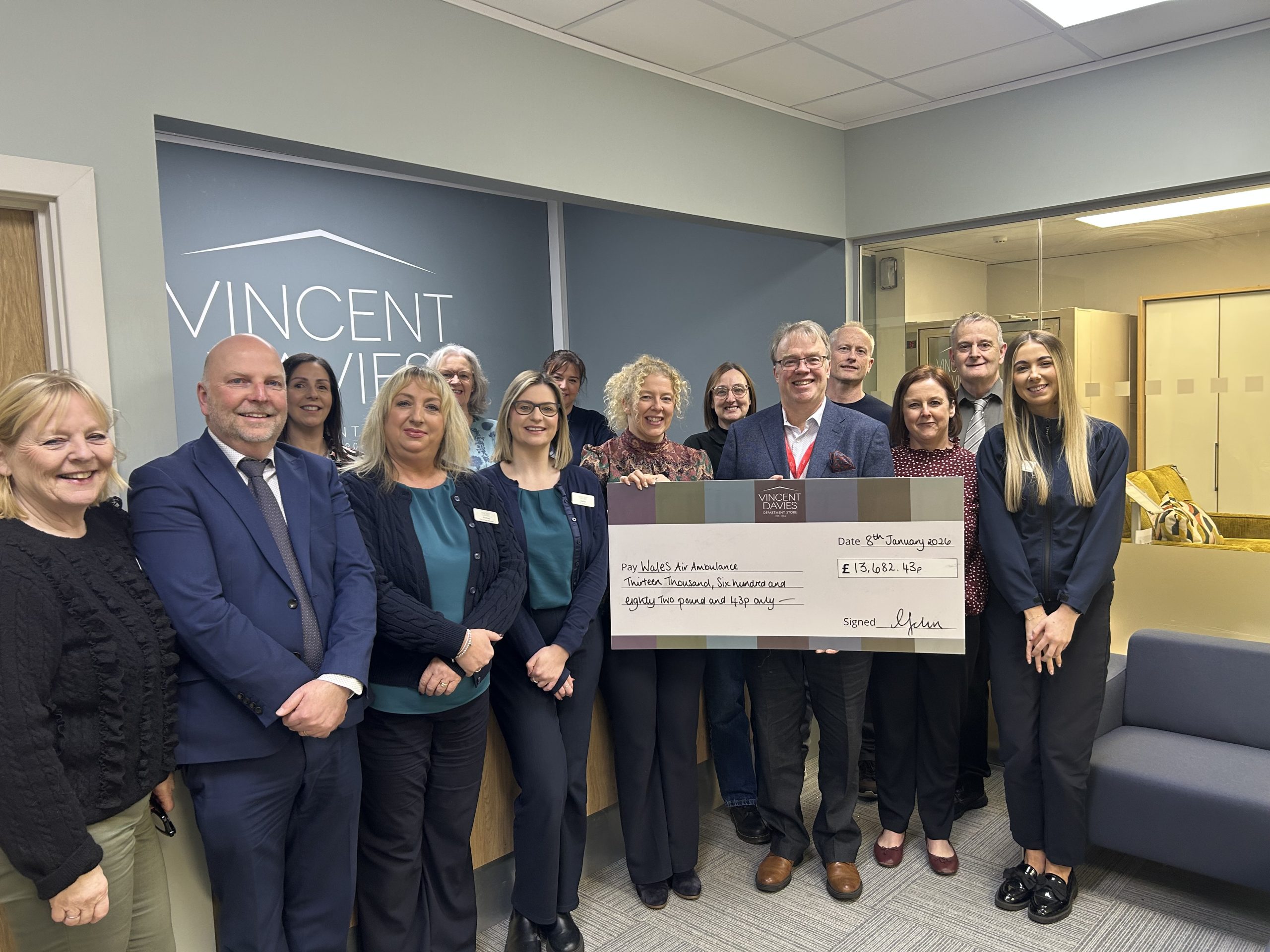
Independent Haverfordwest store backs lifesaving crews with year of community fundraising
A WEST WALES department store has raised more than thirteen thousand pounds for a lifesaving emergency service after a packed year of community fundraising.
Staff at Vincent Davies Department Store collected £13,682 for the Wales Air Ambulance Charity, after voting the organisation their Charity of the Year for 2025.
The independent retailer organised events throughout the year, including an Easter bingo, bake sales, quizzes, raffles, staff sales, Christmas jumper days and a festive wreath-making workshop. Charity jam jars placed in Café Vincent also helped gather steady donations from customers.
One of the most popular attractions was the store’s charity singing penguin trio, which drew smiles from shoppers of all ages and boosted collections.
Sarah John, Joint Managing Director at Vincent Davies, said: “Raising £13,682 for the Wales Air Ambulance Charity is something we are extremely proud of at Vincent Davies Department Store. As a director, it’s wonderful to see our community come together to support a charity that makes such a lifesaving difference.”
The air ambulance is consultant-led, delivering hospital-level treatment directly at the scene of serious incidents and, when needed, transferring patients straight to the most appropriate specialist hospital.
Working in partnership with the NHS through the Emergency Medical Retrieval and Transfer Service, crews can provide advanced critical care including anaesthesia, blood transfusions and even minor surgical procedures before reaching hospital.
Operating across the whole of Wales, its teams travel the length and breadth of the country by helicopter and rapid response vehicle to reach patients quickly in both rural and urban areas.
This is not the first time the Haverfordwest store has backed the cause. In 2016, staff previously raised £5,831 when the charity was also chosen as their beneficiary.
Mike May, the charity’s West Wales Regional Fundraising Manager, said: “We are so grateful to Vincent Davies Department Store for raising an incredible amount for our charity. Throughout the year they put on a variety of different events and what a successful fundraising year it was.
“The charity needs to raise £13 million every year to keep our helicopters in the air and our rapid response vehicles on the road. By raising £13,682, the staff and customers have played an important part in saving lives across Wales.”
The store says it will announce its Charity of the Year for 2026 in the coming weeks.
-

 Crime2 days ago
Crime2 days agoSex offender jailed after living off grid in Pembrokeshire and refusing to register
-

 Health16 hours ago
Health16 hours agoHealth board targets rise in steroid and gym drug use across west Wales
-

 News3 days ago
News3 days agoPrincess of Wales visits historic Pembrokeshire woollen mill
-

 Crime7 days ago
Crime7 days agoPembroke man accused of child sex offences sent to Swansea Crown Court
-

 Health5 days ago
Health5 days agoDoctor struck off after sexual misconduct findings at Withybush Hospital
-

 Crime18 hours ago
Crime18 hours agoTeacher injured and teenager arrested for attempted murder at Milford Haven School
-

 Community7 days ago
Community7 days ago50s women threaten legal action over pension compensation refusal
-

 Education6 days ago
Education6 days agoIndustry insight helps marine cadets chart career course























